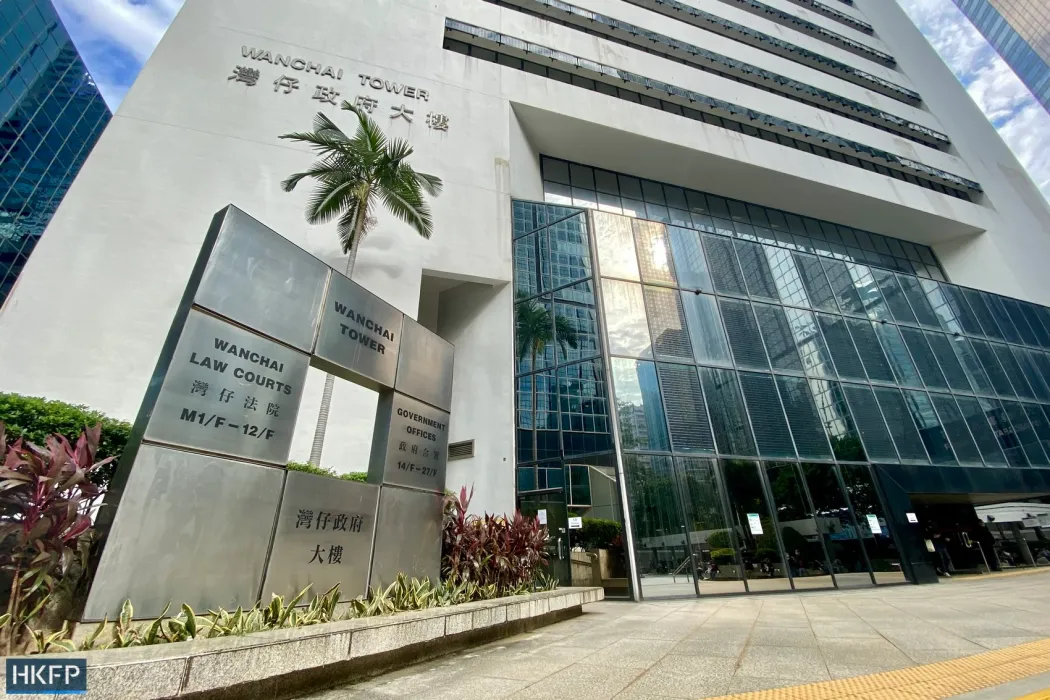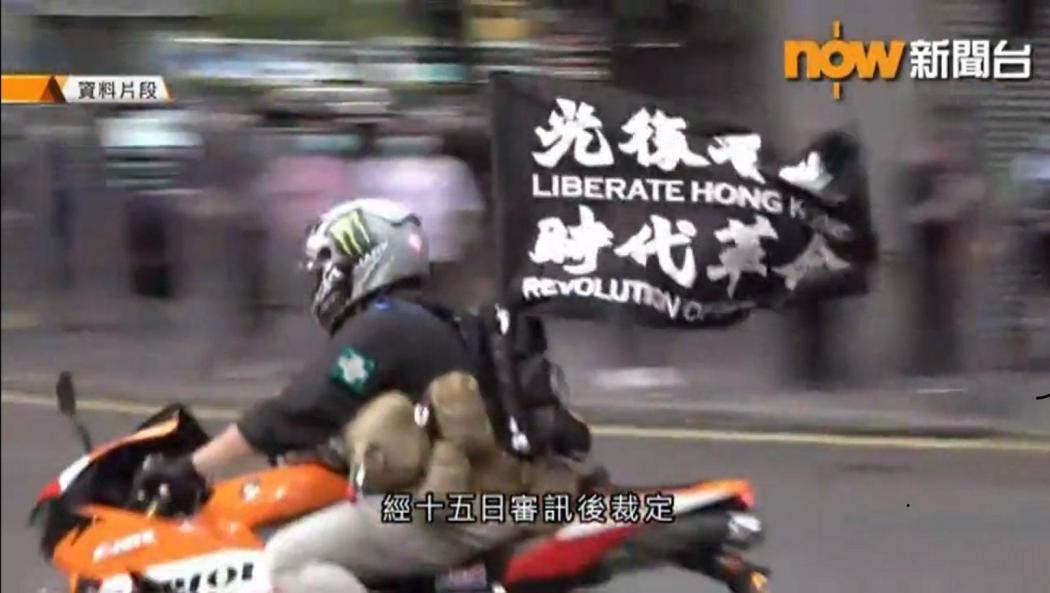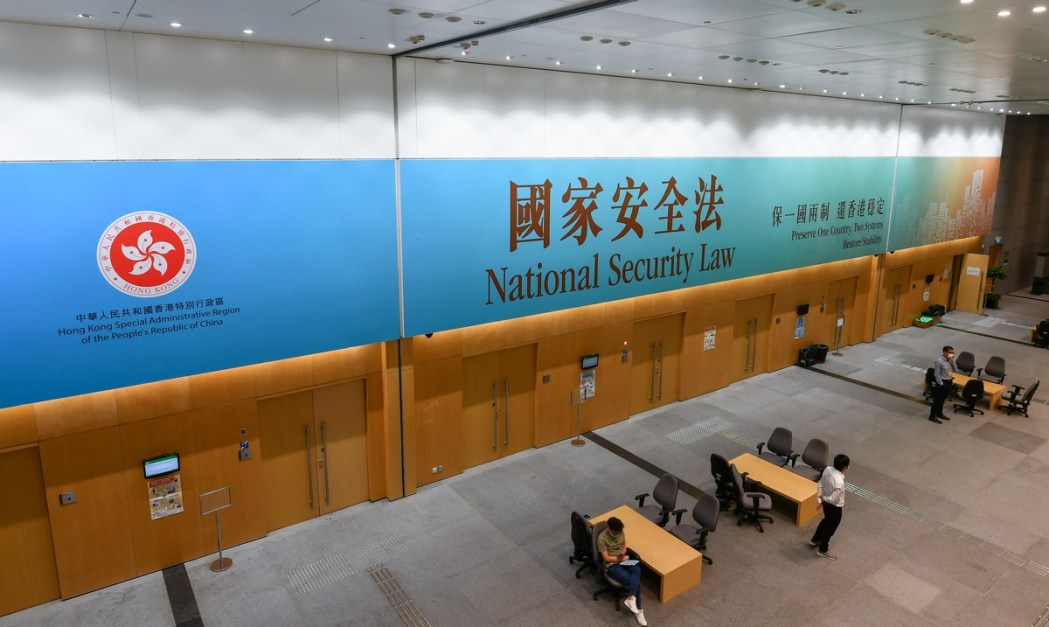A Hong Kong court has sentenced a man to five years and nine months in prison for inciting secession by making numerous pro-independence speeches in public and online.
Former food delivery worker Ma Chun-man, described by the defence as a non-violent loner who sought company at protests, is the second person jailed under the Beijing-imposed national security law and the first to be convicted for acts involving only speech.

The District Court on Thursday passed sentence on Ma, better known as “Captain America 2.0,” during pro-democracy protests.
The 31-year-old had pleaded not guilty to chanting slogans and making speeches that called for Hong Kong’s independence on at least 20 public occasions and on social media platforms between August and November 2020. But he was convicted by District Judge Stanley Chan last month after trial.
His defence team had claimed Ma wanted only to “test” the security law and show that free speech was protected under it. He was not making sincere calls for independence, they said.
Dressed in a grey sweater, Ma nodded and waved at spectators when he entered the dock on Thursday. One shouted: “No need to be afraid, Captain. We will meet later.”
‘No remorse’
District Judge Chan said Ma’s case amounted to a “serious nature” as stipulated in Article 21 of the national security law.
Ma showed no remorse, Chan said, citing the defendant who wrote “I don’t feel ashamed and I have no remorse for what I did in the past.” The psychological report also did not mention that Ma had “one ounce of remorse.”

Ma was said to have a “layered” plan to incite other people to seize Hong Kong’s sovereignty from the hands of China. He proposed starting at school level and gradually expanding to all social classes to “prompt the next revolution,” the judge ruled.
The defendant’s incitement behaviour was self-serving to a certain extent, Chan said, to fulfil what the court saw as the need to seek exposure. “[To fulfil] his needs to validate his existence,” Chan said, adding that Ma may cause those incited by him to engage in “radical behaviour.”
“It is hard to say they won’t become the next Ma Chun-man,” the judge said.
Chan went on to day that Ma had “vilified” the security legislation by saying it was “fake.” He also misled other people into thinking that he did not breach the law by telling them that he was arrested several times and yet still got police bail, Chan said.

The judge said such behaviour may prompt people to violate the law, similar to calls for people to cast a blank ballot at elections: “Then some people really did break the law.”
‘Smugness’
Chan said Ma’s self-proclaimed title as “Captain America 2.0” was proof of his “smugness,” and the attention and recognition Ma gained through that persona “gave him the positive image he could not attain in reality.”
“It made [Ma] think he had a more meaningful life… [he thought] political mission was the only choice in life,” the judge said.
A representative from the British consulate-general was among those sitting in the public gallery. Britain, the former colonial power, is among numerous nations which have protested about the effect of the sweeping security law on Hong Kong society.
‘Lonely’
In his mitigation plea on Thursday, Ma’s representative, Senior Counsel Edwin Choy, cited a handwritten letter from his client and a psychological report to say that the defendant had been “lonely.”

This was why he had chosen to take part in sing-along protests in shopping malls, the lawyer said, because he felt that he could connect with other people there.
The defence described Ma’s life as “rather miserable,” saying he did not have a close-knit family and had performed poorly in school and in his previous jobs. Choy stressed that his client opposed the violence that broke out between some protesters and people with a different political stance, and never caused physical harm to others.
His offence was “not the most severe” among cases of a similar nature.
The defence cited the sentence in the case of Tong Ying-kit, who was the first person incarcerated – for nine years – under the security law enacted by Beijing in June 2020.
He was convicted of inciting secession and terrorism after driving a motorcycle with a flag reading “Liberate Hong Kong, revolution of our times” into three police officers at a checkpoint.
Tong was sentenced to six and a half years in jail for the incitement to secession charge, and an eight-year jail term for committing acts of terror. Part of the terrorism sentence was to be served consecutively, for a total of nine years.

Choy said that, in contrast, Ma had not engaged in any “open defiance.”
While he had been interviewed by the press, they were not “mainstream media” and the impact of his client’s inciting behaviour was limited. “Except for being noisy, [what Ma did] was peaceful,” Choy told the court.
Prosecutor Laura Ng said that although there were no sentencing principles for the type of offence of which Ma was convicted, Article 21 of the security law set a minimum sentence.
In cases judged to be of a “serious nature,” anyone who incites secession shall be sentenced to a fixed-term imprisonment of no less than five years but not more than 10 years. Offences of a “minor nature” are punishable by no more than five years in prison, short-term detention or some other restriction.
The maximum jail sentence for cases tried in the District Court is seven years. Other mitigation factors should not bring the sentence below the minimum, Ng said.

On Thursday, Chan set the starting point of Ma’s sentence at six years, but said he decided to offer discretion and reduce his jail term by three months, because the defence saved the court’s time by agreeing with most of the prosecution’s case.
A woman in the public gallery shouted “Too long!” as Chan read out the final jail term of five years and nine months. The judge asked the court staff to note down the woman’s identification details.
‘Outrageous’
Amnesty International’s Deputy Secretary General Kyle called the sentencing “outrageous.”
“In the warped political landscape of post-national security law Hong Kong, peacefully expressing a political stance and trying to get support from others is interpreted as ‘inciting subversion’ and punishable by years in jail,” he said in a statement. “This conviction and sentencing clearly shows that restrictions on the right to freedom of expression in Hong Kong are dangerously disproportionate. The two verdicts handed down in national security law cases have not paid due regard to the human rights safeguards the Hong Kong authorities claim exist in the law.”
Support HKFP | Policies & Ethics | Error/typo? | Contact Us | Newsletter | Transparency & Annual Report | Apps
Help safeguard press freedom & keep HKFP free for all readers by supporting our team
























